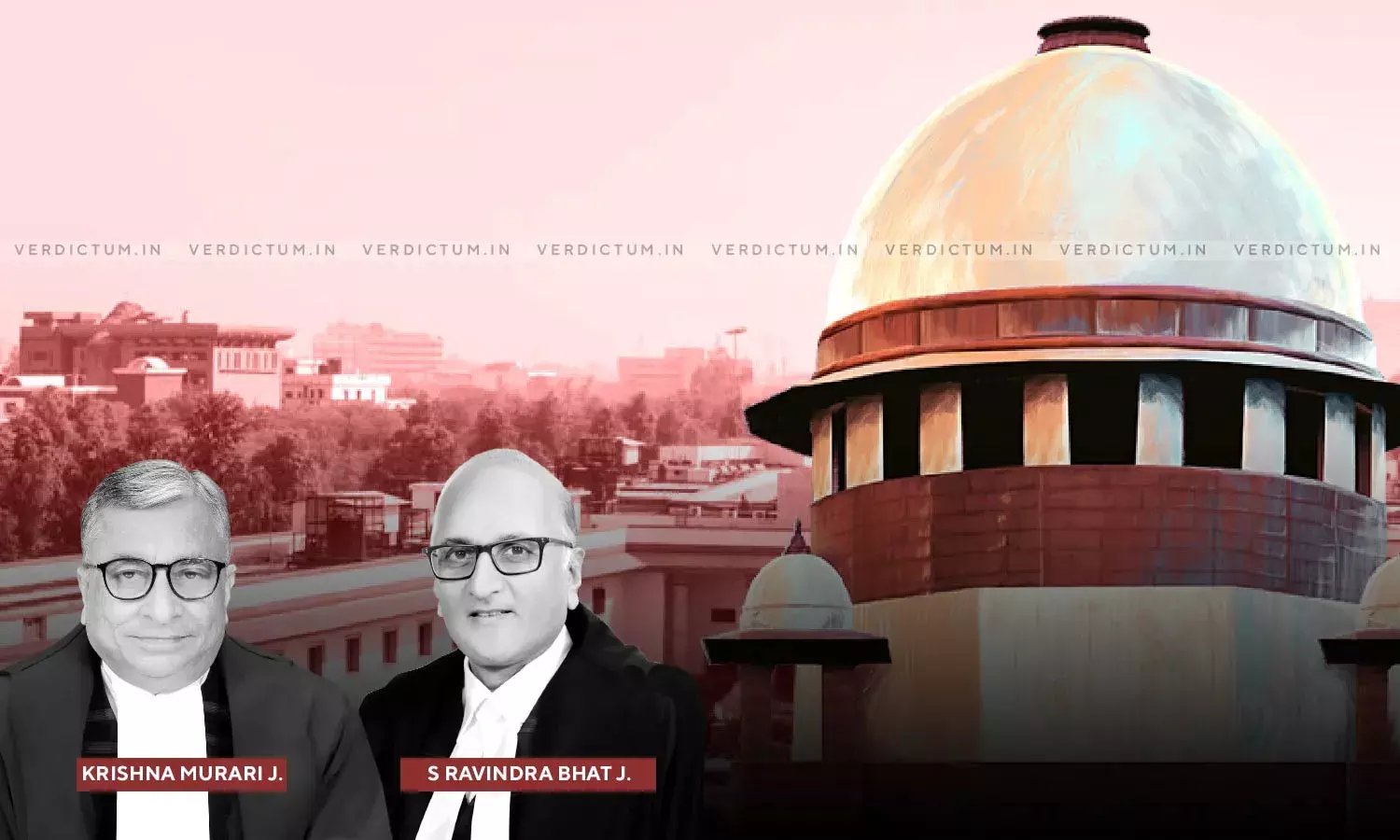Execution Courts Must Be Conscious That They Cannot Draw A New Decree- SC While Setting Aside Order Of Execution Court

A Supreme Court Bench of Justice Krishna Murari and Justice S. Ravindra Bhat has cautioned that the Execution Courts must be very cautious in supplementing their interpretation and conscious of the fact that they cannot draw a new decree. It has further reiterated that the Executing Court must take the decree as it stands.
Senior Advocate Shyam Divan appeared for the Appellants, while Senior Advocate Shekhar Naphade and Senior Advocate Pallav Shishodia appeared for the Respondents.
In this case, the Appellants (Agrawal) and Respondents (Kotharis) entered a joint venture agreement as equal shareholders. Each brought in Rs. 10 crores as interest-free loans. Thereafter, the Respondents bid for the entire 50% shareholding of the Appellants, which was accepted. However, the Respondents included the loan amount in the consideration amount, which was unacceptable to the Appellants, and this was communicated expressly by email.
The Kotharis filed a Commercial Suit for the declaration that the agreement was binding on the Agrawal. This was followed by a Notice of Motion seeking a decree on admission, which was awarded.
The Kothairs filed for execution proceedings, and so did the Agarwals. The Execution Court held that the decree was ambiguous, as the Agarwals had neither filed any reply to the Notice of Motion, nor any written statement. Hence, the Execution Court held that the total consideration was inclusive of the loan amount.
The Court noted that "The single judge has described the decree as ‘ambiguous’ simply on the absence of its engagement with the loan amount, and proceeded to go behind it by looking into the pleadings (of only the respondents, as appellants had not filed any – which has been adversely inferred by the Court) – and relied on the term, ‘free of all claims of the defendants’ contained in the decree, to enlarge its scope to include the contested amount. Affirming the same, the Division Bench of the High Court has laid emphasis on the exchange of emails pursuant to the one containing the agreement, especially the email dated 29.03.2019 sent by Kotharis outlining the break-up of the amount for the first time, which was expressly rejected by Agrawals in their response dated 11.04.2019. There was a clear lack of consensus on this inclusion."
In light of the same, the Court concluded that "Both the Courts’ interpretation of reading the Agrawals’ consent into the same is clearly an exercise in overreach."
Noting that the Apex Court has repeatedly cautioned against the Execution Courts adopting such an approach, the Court was of the considered view that "As is commonly known, the stream cannot rise above its source. Both Courts have, by selectively perusing the emails, altered the terms of the decree to include the loan amount into the agreement consideration. It is also imperative to note that such a reading was despite the clauses in the joint venture agreement entered into between the parties in 2017".
Holding that "It is undeniable that an Executing Court can construe a decree if it is ambiguous. However, as in the facts of the case herein, this cannot result in additions (to the terms of the consent, embodied in the email dated 28.03.2019) which were not agreed upon by the parties, since the decree was drawn on by consent of both parties at admissions stage itself. Both the single judge and Division Bench of the High Court have interpreted the appellants’ silence (manifest in their not filing any written statement) as acquiescence to the inclusion of the loan amount, which, is although worthy of adverse inference, cannot be the reason to justify expansion of the decree.", the Court allowed the appeal and set aside the impugned Judgment.
Cause Title: Sanwarlal Agrawal & Ors. v. Ashok Kumar Kothari & Ors.
Click here to read/download the Judgment

